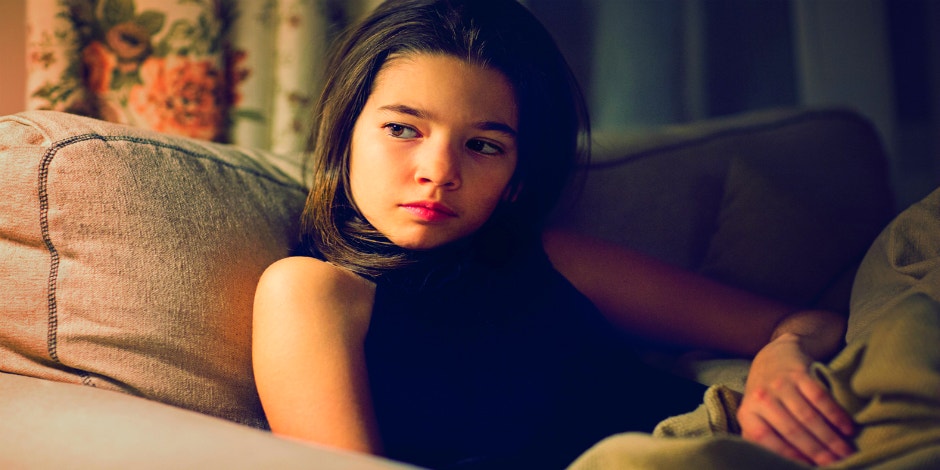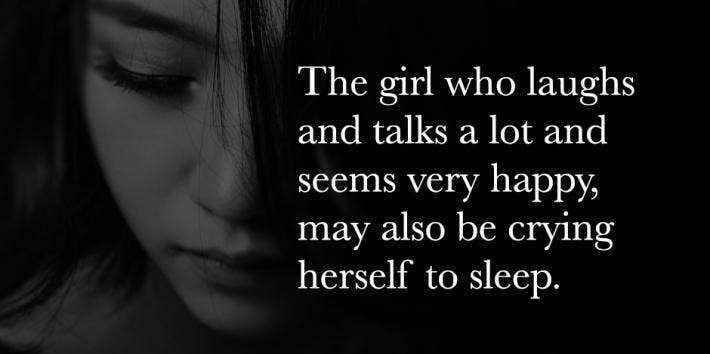
Don't miss these signs.
By Natasha Daniels — Written on Dec 14, 2016
Photo: istock

Parents would know if their child is anxious, right? You'd probably see obvious signs, right? Your child would express all their fear and worries. They would be afraid all the time.
You might think you would know the child anxiety symptoms, but sometimes it is not. Sometimes, parents miss it altogether. Unfortunately, anxiety isn't always that obvious. Some children don't vocalize their worries. They don't show their fears. And anxiety isn't on their parents' radar.
In my child therapy practice, parents often bring their children in for other reasons, only to discover that the problem is actually anxiety. Here are child anxiety symptoms that are sometimes missed:
1. They experience physical symptoms.
Anxiety isn't just in our minds, it is in our body as well. Here are a few examples:
Your child won't poop. They have been constipated for weeks. You've been to the doctor and there is no medical origin.
Your child's stomach hurts. They feel like throwing up. They are having gastrointestinal problems. You brought them to the pediatrician. You went to the gastrointestinal specialist. Your child has been poked, prodded and maybe even scoped. No medical origin has been found.
2. They refuse to go to school.
Your child used to love school. They've always had friends and they have always gotten good grades. Now it is a battle just to get them in the car. They tell you they don't feel well. Their stomach hurts. They say they are going to throw up. You keep them home, only to feel bamboozled because they seem fine shortly thereafter.
You talk to the teacher and the counselor. Everyone swears up and down that your child has friends. That they are not being bullied. That they enjoy school. Weekends are pain-free. Your child seems completely healthy... and then Sunday rolls around. The cycle begins again.
3. They are angry.
Anger can be tricky. Kids can be angry for so many reasons. They might have difficulty self-regulating. They might have a mood issue. They might have a hard time accepting no. But along with the usual contenders, it can be child anxiety symptom that's the underlining cause of anger too.
If your child stuffs their worries way down deep, the only thing to bubble to the surface might be their anger. They come home from school ready to explode. Bedtime brings rage and resistance. New situations cause unusual hostility and defiance. Pay attention to when and why your child gets angry as it could be the key to unearthing the true cause.
4. They avoid participating in activities.
Your child used to love soccer practice and now they are refusing to go. Your child said they wanted to take swim lessons, but after the first lesson you can't get them back to class. Your child always wants to stay home and refuses to go to restaurants and stores with you.
When a child starts avoiding situations they used to enjoy, it is time to take a second look at why. It might be that they simply no longer like soccer or swim class, but it might be something more significant.
The #1 unhealthiest, go-to coping mechanism for anxiety is AVOIDANCE. Avoid at all costs.
If I don't go to soccer, then I won't have to worry about the ball hitting my face.
If I say I don't want to swim, then I won't have to worry about sinking to the bottom of the pool.
If I put up a big fight, then I won't have to go to the restaurant and worry about throwing up in public.
5. Their routines become rituals.
Related Stories From YourTango:
Your child has to line up all their stuffed animals in a perfect row before they go to bed. You have to say “I love you” in a certain way, for a certain number of times, before your child will go to bed.
Parents often mistake ritualistic behavior for routines. Routines are comforting and predictable. Rituals are rigid and need to be redone if not done “correctly.” Routines are a healthy part of childhood; rituals are an indication of anxiety.
Anxiety is a very treatable condition. The earlier children get help, the better the prognosis in the long run.
If you feel like your child is having some signs of anxiety, seek out the advice of a mental health professional. It can never hurt to get some professional input and guidance. Educate yourself and find support and resources on the web. Watch parenting videos. Think outside of the box. You can use yoga and other activities to help reduce your child's anxiety.
This article was originally published at Anxious Toddlers. Reprinted with permission from the author.

